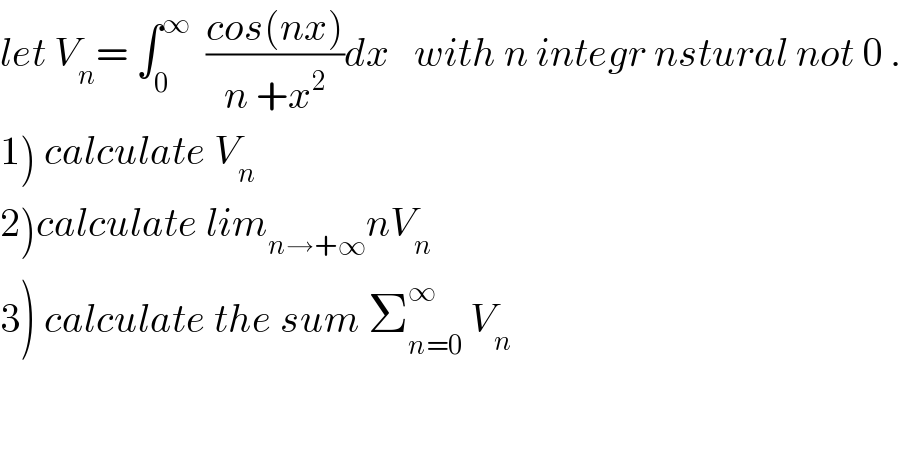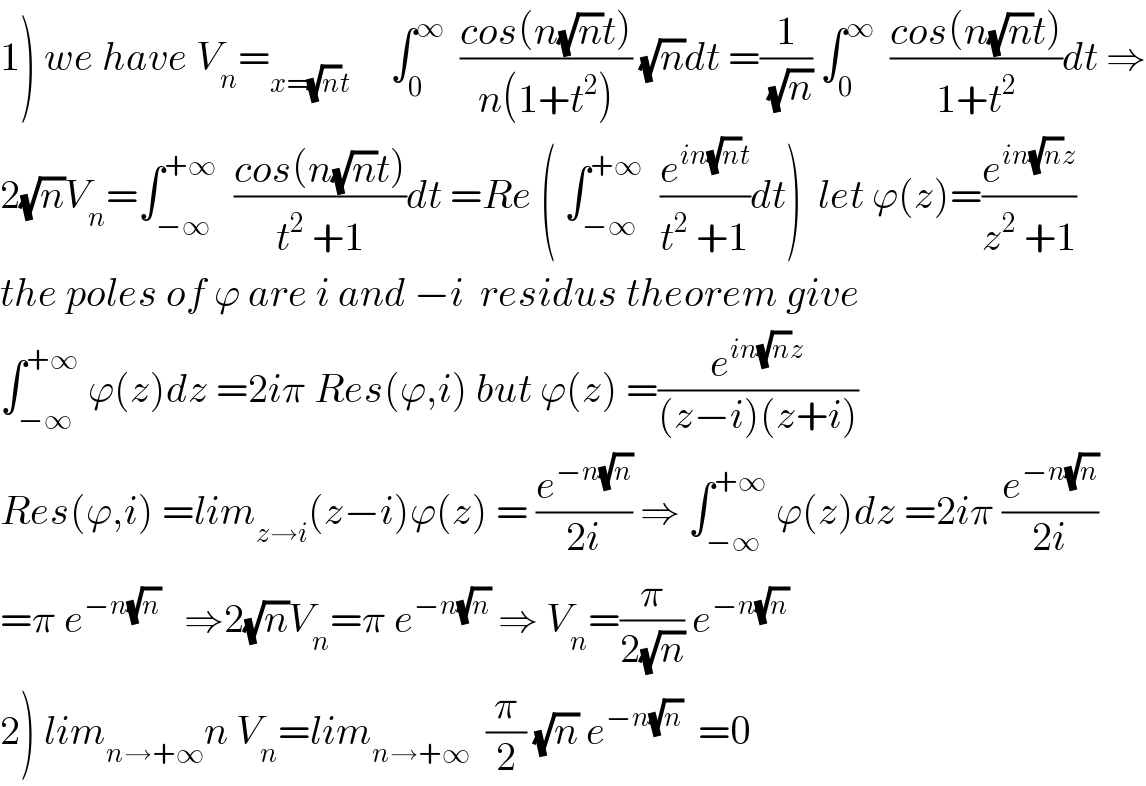
Question and Answers Forum
Previous in Relation and Functions Next in Relation and Functions
Question Number 54830 by maxmathsup by imad last updated on 12/Feb/19

Commented by maxmathsup by imad last updated on 13/Feb/19

| ||
Question and Answers Forum | ||
Previous in Relation and Functions Next in Relation and Functions | ||
Question Number 54830 by maxmathsup by imad last updated on 12/Feb/19 | ||
 | ||
Commented by maxmathsup by imad last updated on 13/Feb/19 | ||
 | ||